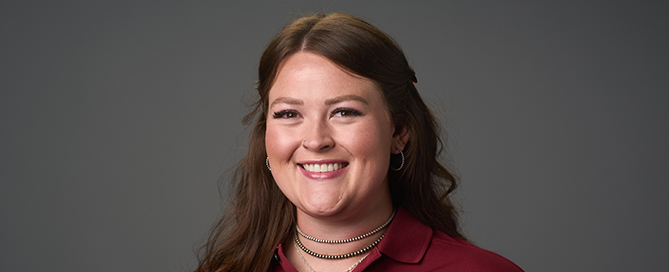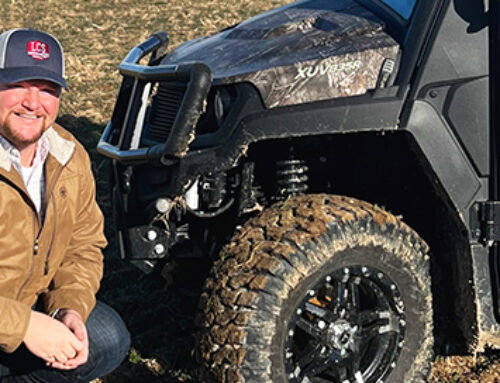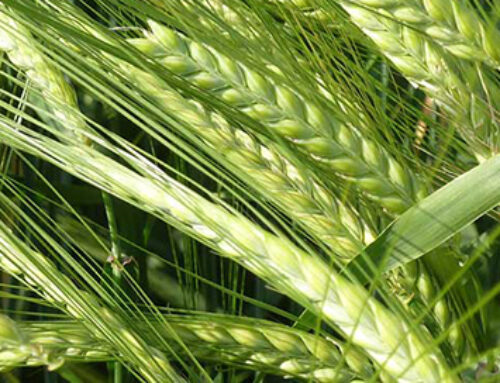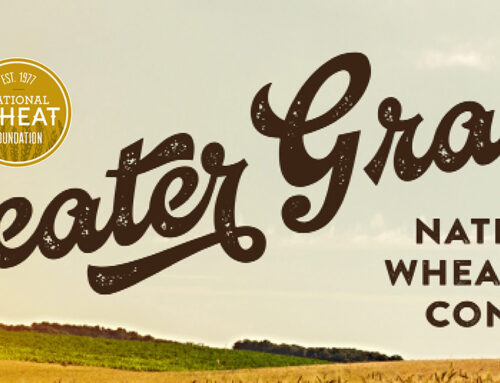The regional commercial manager for the PNW comes from a long line of farmers
Bailey Jenks found her calling in dryland wheat. The Limagrain Cereal Seeds (LCS) regional commercial manager for the Pacific Northwest brings years of experience, a crop science education and a legacy of farming to her work.
Agriculture is in her blood. Jenks carries the torch of a farming heritage that started in the 1800s when her Irish and European ancestors came to America. Following in the footsteps of her parents, who both studied agriculture, Jenks enrolled in the ag business program at Oregon State University (OSU). Though the subject matter fascinated her, the prospect of serving farmers from behind a desk did not.
“Getting my hands dirty in the field is where I belong,” says Jenks. “When I realized that ag business wasn’t going to take me down that road, I switched to crop science. That’s where I really fell in love.”
Jenks supplemented her undergraduate studies with summer internships at Monsanto, where she worked in corn and soybeans. She witnessed plant breeding for the first time — creating hybrids and crosses to create new varieties — and got a primer on the seed business. After graduation, she worked in precision ag technology for Pratum, a co-op in the Willamette Valley and Central Oregon. For nearly four years, she helped growers assess and enrich their fields using technologies like soil moisture sensors, aerial mapping and variable rate application.
“The technology shift over the generations is something I’ve always been interested in,” says Jenks. “We’ve gone from horse-drawn implements to self-propelled equipment to precision agriculture driven by computer science.”
Helping growers farm smarter drove her work at Pratum and inspired her next move — heading back to OSU. Jenks grew up hearing stories about dryland wheat farming; several generations of her father’s family had traveled to the PNW to custom harvest wheat. When the opportunity to join OSU’s wheat breeding program presented itself, she jumped at the chance.
Joining LCS, the leading wheat provider in the PNW, was a natural next step and marked her transition from science to sales, driven by a desire to bridge the gap between high-performing wheat varieties and the farmers who need them.
“Working with the growing conditions you have and picking the best genetics for your farm is crucial. It determines what a farm’s acres will yield and how well a farmer will do throughout the year,” says Jenks, particularly in more challenging dryland conditions. The heart of her job as the LCS regional commercial manager is connecting with PNW growers. Jenks uses her science background to review agronomic properties and trial results, explaining what varieties can and can’t do and ultimately helping farmers make the best choices for their acres.
Having a diverse portfolio of wheat lines helps. “The access LCS has to European genetics is very valuable to PNW farmers. Crossing PNW genetics with the European lines means you have a stellar variety that’s adapted to the PNW and has the extra disease resistance from Europe — it’s almost unstoppable.” The LCS research team and Quality Lab put the resulting genetics through rigorous performance tests before bringing anything to market.
That includes Clearfield Plus and the new CoAXium wheat lines, both bred to control herbicide-resistant grassy weeds. “The ability to rotate between chemistries and traits is healthy for the PNW wheat industry,” says Jenks. “Having more tools in the toolbox is always going to be a better way to tackle problems.”
Jenks works in partnership with the Genetic Marketing Group to make LCS wheat genetics accessible across the PNW. She’s on the road a lot, navigating a territory that includes Oregon, Washington and Idaho to understand the different microclimates and unique needs of farmers across the region. She considers it a perk: “I really enjoy one-on-one conversations with growers, and it’s a beautiful country to get lost in.”
Jenks credits her parents with fueling her passion for agriculture and learning; her dad works for Wilbur-Ellis, and her mom is an elementary school teacher. Hard work and serving others are other shared family values. The family has raised 12 puppies for Guide Dogs for the Blind.
“Service is how my brain is wired,” says Jenks, and it informs her work at LCS every day. “Any way that I can help growers achieve the best results possible and help feed the world — it’s about doing what I can to help the greater good.”








